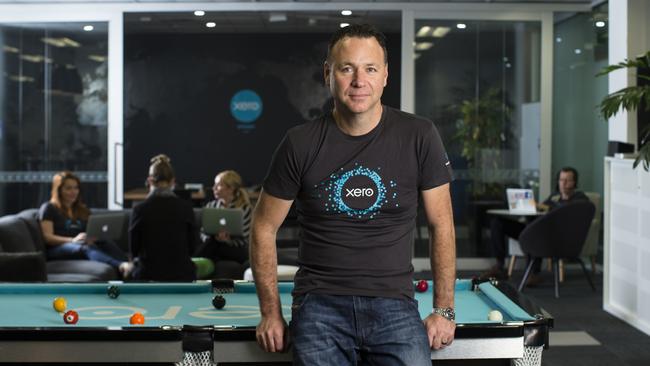Xero Small Spark survey: small business on the rise
Online accounting company Xero says more Australians are ditching their jobs to start their own businesses.

Online accounting company Xero says more Australians are ditching their jobs to start their own businesses, spurred by difficulties finding full-time work because of barriers including language, age, skills and disabilities.
Xero’s Small Spark survey of more than 340 small business owners across Australia and New Zealand found more than half of Australian small-business owners cite wanting to be their own boss as one of the top reasons to start a business, along with 42 per cent wanting to increase their income, and 41 per cent seeking more freedom and a better lifestyle.
Xero managing director Trent Innes says it is inspiring to see small-business owners scratching their entrepreneurial itch to overcome employment obstacles.
“We know this spark, that light-bulb moment that leads to their small business, starts out as just something small,” Innes says. “But it changes the lives of these people and those around them by driving growth and creating jobs. The more of these sparks we have, the quicker we can grow the small-business economy.”
The survey also found 72 per cent would go above and beyond for their customers all the time, 55 per cent had taken meetings outside business hours and 52 per cent threw in freebies or add-ons to win customer loyalty.
JOBS OUTLOOK STABLE
ManpowerGroup’s employment outlook for 2017 shows Australian employers are staying level-headed when it comes to hiring despite broader economic and political uncertainty.
The latest quarterly report shows hiring intentions remain cautiously optimistic, with some job gains expected and almost 80 per cent of businesses intending to keep their headcounts steady.
Australia and New Zealand managing director Richard Fischer says the survey’s net employment outlook is down compared with the last quarter but at the same level as this time last year. “If you look at what the last 12 months have brought from a macro political and economic perspective, it was certainly a year of uncertainty and change,” Fischer says.
“We have had a double-dissolution election in Australia, the Brexit decision in the United Kingdom and an American presidential campaign. While there is arguably still some uncertainty around the impact of such events, business sentiment has been relatively stable.”
GO HOME, TURN OFF
Workplace law firm McDonald Murholme is encouraging Australian managers and employees to follow the French and disconnect from emails once they finish work at night, saying expecting workers to be connected 24 hours a day is a breach of workplace laws.
Legislation recently approved in France grants employees the legal right to disconnect from emails and ignore work correspondence outside normal working hours, to minimise workplace stress and limit the use of work-related technology away from the office.
Managing director Alan McDonald says the French have often been at the forefront of change and the ban is a good example of change geared towards improving employee living standards and family life, at no cost to the employer.
“Responsible employers have recognised for a very long time that good work-life balance attracts the best employees,” McDonald says.
“It gives longevity of service and it ensures high performance.
“Surreptitiously extending work hours by expecting employees to be on call 24/7 via email is already in breach of Australian workplace law.”
He says employees working more than reasonable hours of overtime should be eligible for time in lieu.


